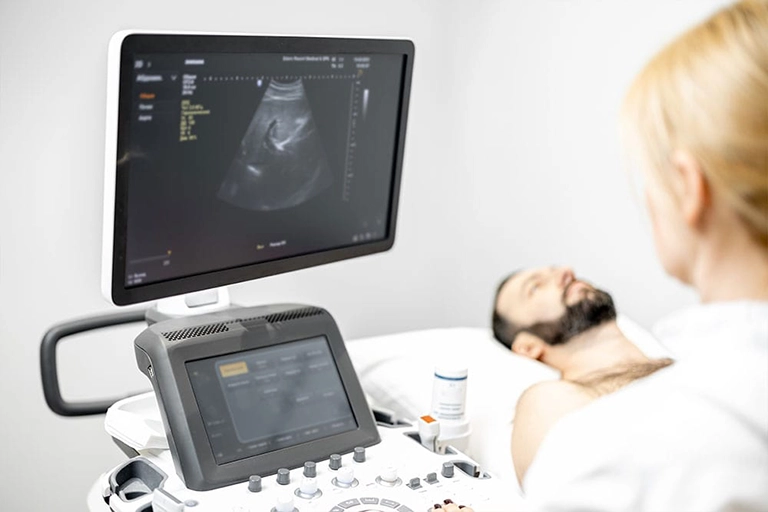If your health care provider or gastrointestinal specialist suspects you have an issue with the condition of your liver, they may suggest you undergo an ultrasound on your liver. Liver ultrasounds can be helpful to check for disease, tumors, cysts, scar tissue and abscesses. The way that your care providers can determine if you have any of the aforementioned issues is through liver echogenicity.
Liver echogenicity is the ability of your tissue to reflect radio waves on an ultrasound machine. Different types of tissue may appear differently on the ultrasound, including abnormalities in the tissue. Different tissues have different types of echogenicity, which are how they can be identified in an ultrasound. Medical professionals are most qualified to interpret liver echogenicity in an ultrasound, but if you want to know general information about liver echogenicity, keep reading below.
How can you read liver echogenicity?
- Hypoechogenic — Hypoechogenic tissue is the type of tissue that is denser and thicker than normal. This tissue usually appears dark gray on an ultrasound image because it doesn’t reflect many radio signals.
- Hyperechogenic — Hyperechogenic tissue is the kind of tissue that causes an increased reflective response in an ultrasound. It usually can be identified by lighter coloration on an ultrasound image. Bones and calcified deposits are examples of these.
- Anechogenic — Anechogenic tissue lacks echogenicity, meaning there is no reflection on the tissue from radio signals, and it appears black in an ultrasound picture.
Don’t hesitate to reach out to Center for Digestive Health with any further questions about liver echogenicity
Still wondering what other things you should know about digestive health services? Are you not sure why you might need care, or maybe you are looking for more information or have other digestive health questions? Please don’t wait to reach out to one of our team members for help. Our team of GI specialists has the training and experience to answer any questions you may have. They can also help you find the most effective treatments for your conditions and for common GI issues.
Contact our team today for more information or to schedule an initial appointment.


